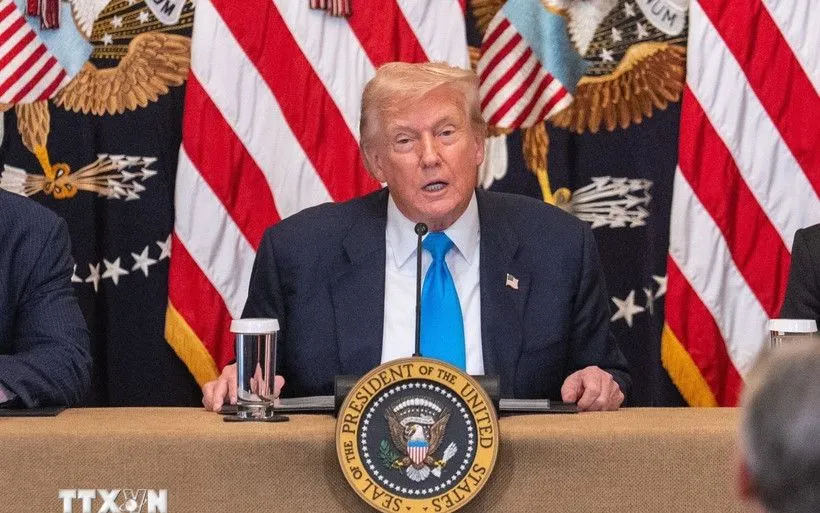
US President Donald Trump. (Photo: THX/TTXVN)
This is a notable change in wording by Mr. Trump, even as the US President still asserts that the policy has overall benefited the people of the country.
Asked if he agreed that Americans were paying the taxes, Trump said he did not agree. He acknowledged that Americans might be paying “some of it,” but insisted that overall Americans were benefiting greatly from the policy.
President Trump argues that eliminating his tariff policy would take away an important tool he has used to resolve international trade conflicts and bring economic fairness to the United States, which is also facing tariffs imposed by trading partners.
Commenting on the possibility of the US Supreme Court ruling against his tax policy, President Trump expressed concern that it would “devastate the country” and the government would have to develop a backup plan. He hoped that they would win the case.
Since taking office, President Trump has used tariffs as a diplomatic and economic tool. He has repeatedly imposed taxes on imports from China, Canada, the European Union (EU) and many other countries around the world. He has long asserted that it is those countries that are paying into the US budget through these taxes. However, economists say that the tariffs are actually borne by consumers.
Previously, in a hearing on November 5, US Supreme Court judges doubted Mr. Trump's authority to impose tariffs based on the International Emergency Economic Powers Act (IEEPA) of 1977, which only regulates import controls in emergency situations and does not mention tariffs.
Based on the judges’ questions, it seems that the tariffs under IEEPA are at risk of being rejected, according to Damon Pike, an expert at consulting firm BDO USA. He added that most judges are skeptical that the law allows the US president to impose unlimited tariffs on global goods.
However, Mr. Pike and many trade experts believe that if the Trump administration loses the case, it will rely on other laws to maintain the tariff policy. Many senior officials, importers and analysts have similar views on this issue.
Businesses have already begun to adjust to a more stable trade environment, thanks to a year-long truce in the US-China trade war and new US trade deals with Southeast Asian countries that have reduced IEEPA tariffs to more manageable levels. But the situation is still “in the dark,” said David Young of the Conference Board, a think tank. He predicted a decision may not come before early 2026, and companies still don’t know whether they will be refunded the more than $100 billion in IEEPA tariffs they have paid.
Judge Amy Coney Barrett warned that refunds could be complicated if the court rules the IEEPA-based taxes illegal. Attorney Neal Katyal, representing five small businesses who sued, said those companies would receive automatic refunds if they win, while others would have to file administrative appeals to get their money back. He acknowledged that it would be “a complicated and lengthy process.” However, Katyal said the court could issue a prospective ruling that would stop new taxes from being collected without refunding past taxes.
Meanwhile, according to Natixis bank expert Christopher Hodge, the tax refund issue is only part of the administrative mess if Mr. Trump loses the lawsuit. Expert Hodge commented that this would only be a “temporary setback” in Mr. Trump’s trade program, as the White House could turn to laws that allow for clearer tariffs, such as Section 232 of the Trade Expansion Act of 1962 (related to national security) or Section 122 of the Trade Act of 1974, which allows for temporary tariffs of 15% for 150 days. However, Mr. Hodge warned that the implementation of the new regulations could be lengthy, adding to trade policy uncertainty and potentially leading to a new round of trade negotiations in 2026.
Federal Reserve Board member Stephen Miran also said that if the Supreme Court ruled against President Trump, it would increase trade uncertainty and “have a negative impact on the economy.” However, Miran — who supports the Fed cutting interest rates sharply — said that this impact could be offset by a looser monetary policy, depending on inflation and employment developments in the coming period.
Source: https://vtv.vn/tong-thong-my-nguoi-dan-dang-ganh-chiu-mot-phan-chi-phi-thue-quan-100251107155610631.htm






![[Photo] Cutting hills to make way for people to travel on route 14E that suffered landslides](https://vphoto.vietnam.vn/thumb/1200x675/vietnam/resource/IMAGE/2025/11/08/1762599969318_ndo_br_thiet-ke-chua-co-ten-2025-11-08t154639923-png.webp)




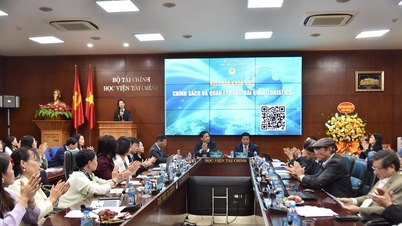

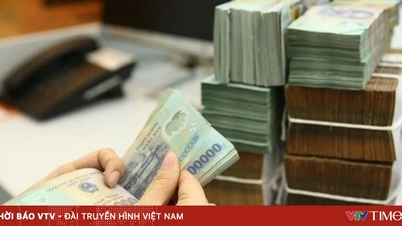
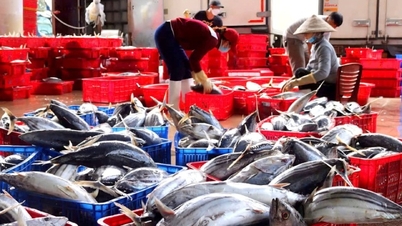

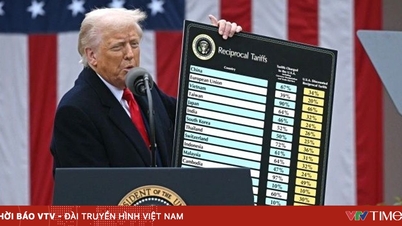




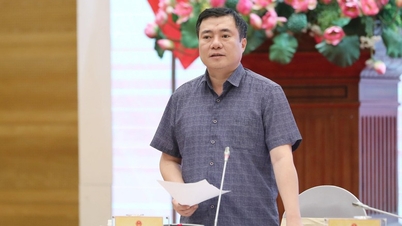
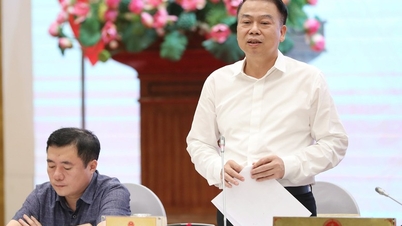












![[Photo] "Ship graveyard" on Xuan Dai Bay](https://vphoto.vietnam.vn/thumb/1200x675/vietnam/resource/IMAGE/2025/11/08/1762577162805_ndo_br_tb5-jpg.webp)







![[Video] Hue Monuments reopen to welcome visitors](https://vphoto.vietnam.vn/thumb/402x226/vietnam/resource/IMAGE/2025/11/05/1762301089171_dung01-05-43-09still013-jpg.webp)































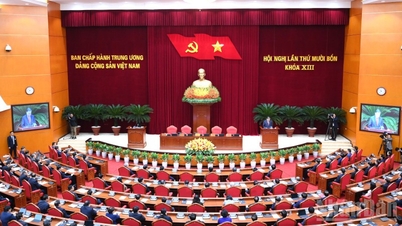



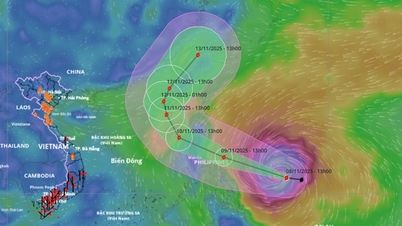




































Comment (0)